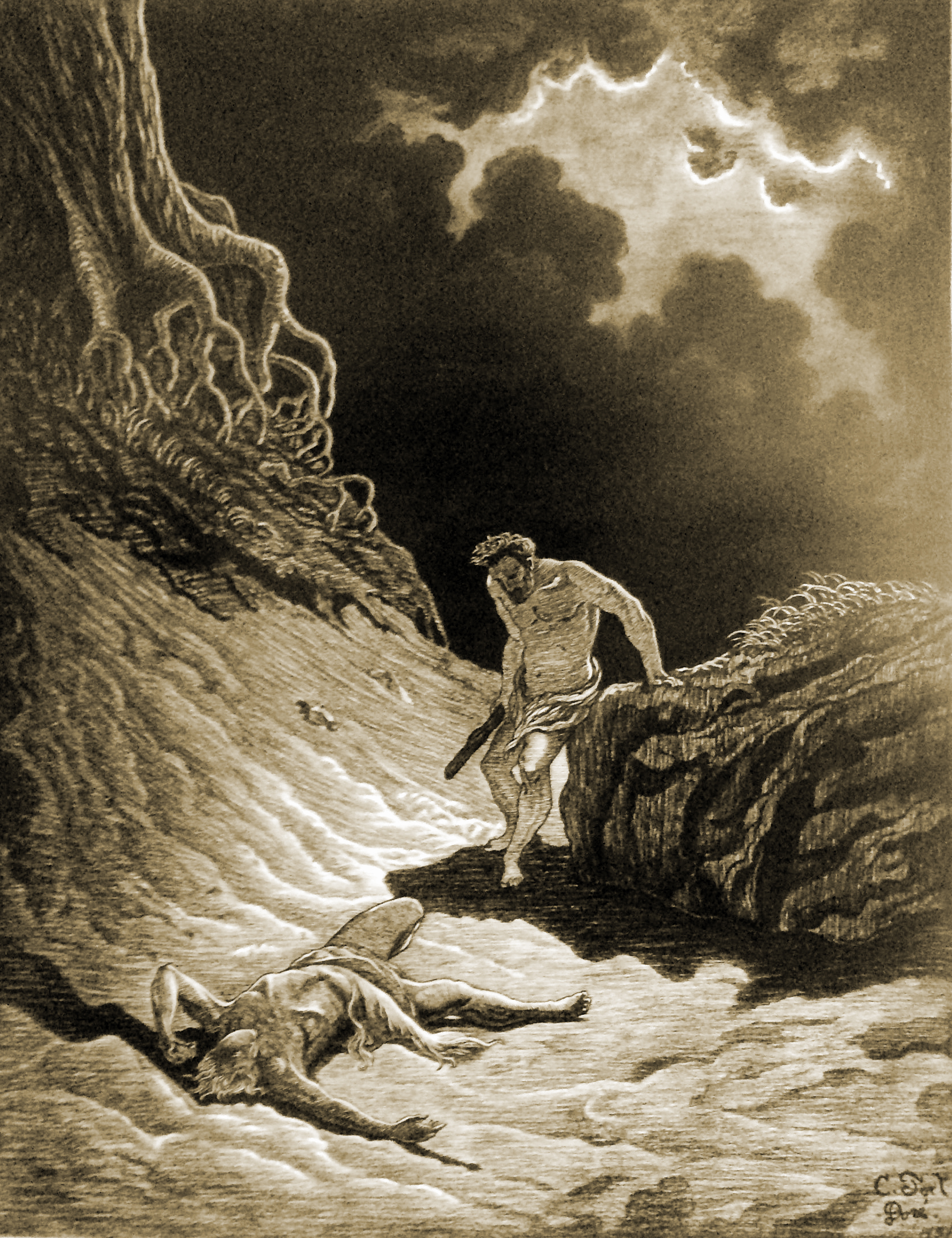Below, translated excerpts from the first chapter of Karlheinz
Deschner’s Kriminalgeschichte des Christentums
(“Criminal History of Christianity”):
VOLUME I
THE EARLY PERIOD:
FROM OLD TESTAMENT ORIGINS
TO THE DEATH OF SAINT AUGUSTINE (430)
Israel
The country in which Christianity arose, a narrow coastal strip east of the Mediterranean in the western reaches of Asia, is a bridge between Asia Minor and North Africa, particularly Egypt. In this “corner of storms” between the two continents rivaled the greatest powers of antiquity.
The Israelites, a nomadic people, livestock herders according to some researchers, occupied part of the land of Canaan perhaps in the fourteenth century B.C., and certainly in the thirteenth. They worshiped several deities and spirits like El of Semitic origin, a deity endowed with a particularly large member, who then finished mingling with Yahweh.
It was precisely the enmity against the Philistines, who, coming probably from the Aegean islands, dominated five coastal cities (Gaza, Astod, Ekron, Ashkelon and Gath), what served to shape the Jewish nationalist delirium and forge the union of the tribes. The Israelites warred against the Tiskal, the Midianites, the Syrians and, of course, also against themselves, to the point that Bethel (= the house of God) was destroyed four times between 1200 and 1000 B.C.
The golden rule for dealing with an enemy city: “When thanks to Yahweh, your God, they have fallen into your hands, you will pass by the sword all the men who dwell therein, and shall be yours women and children as well as beasts and all that there be in it.” Obviously, so merciful treatment is only reserved for distant enemies; to the closest neighbors: “Not one should be left alive.”
But this God, obsessed by his absolutism like no other in the history of religions, and also of an unparalleled cruelty, is the same God in the history of Christianity.
Even today he claims that humanity must believe in him; that they pray, give their life for him. It is a God so singularly bloodthirsty that he “absorbed the demonic” because “being himself the most powerful demon, Israel did not need demons of any other kind” (Volz). It is a God who hives of jealousy and vindictiveness, that admits no tolerance, that strictly prohibits other beliefs and even dealing with the infidels, the goyim, qualified quintessentially as rasha: people without god. Against these he claims “very sharp swords” to perform the “extermination.”
“When the Lord thy God brought thee into the land which you go to possess, and destroyed from your view many nations… you must destroy them without leaving a living soul. You cannot get friendly with them nor have pity: no marriages giving your daughters to their sons or taking their daughters for your sons… You shall exterminate all peoples that the Lord your God will put in your hands. No pity on them before your eyes.”
Nothing pleases more to God than both revenge and ruin. He gets drunk with blood. From the “settlement,” the historical books of the Old Testament “are but a long chronicle of ever renewed carnage, without reason and without mercy” (Brock).
